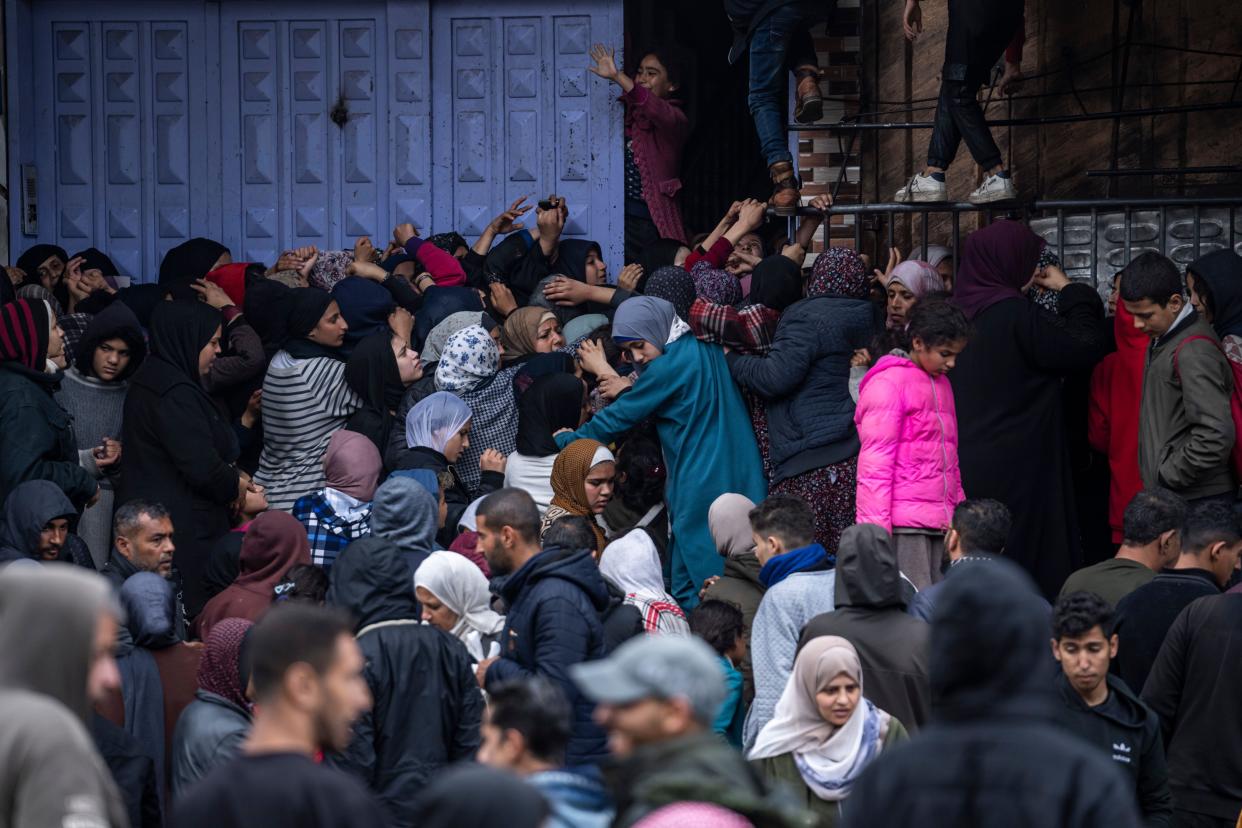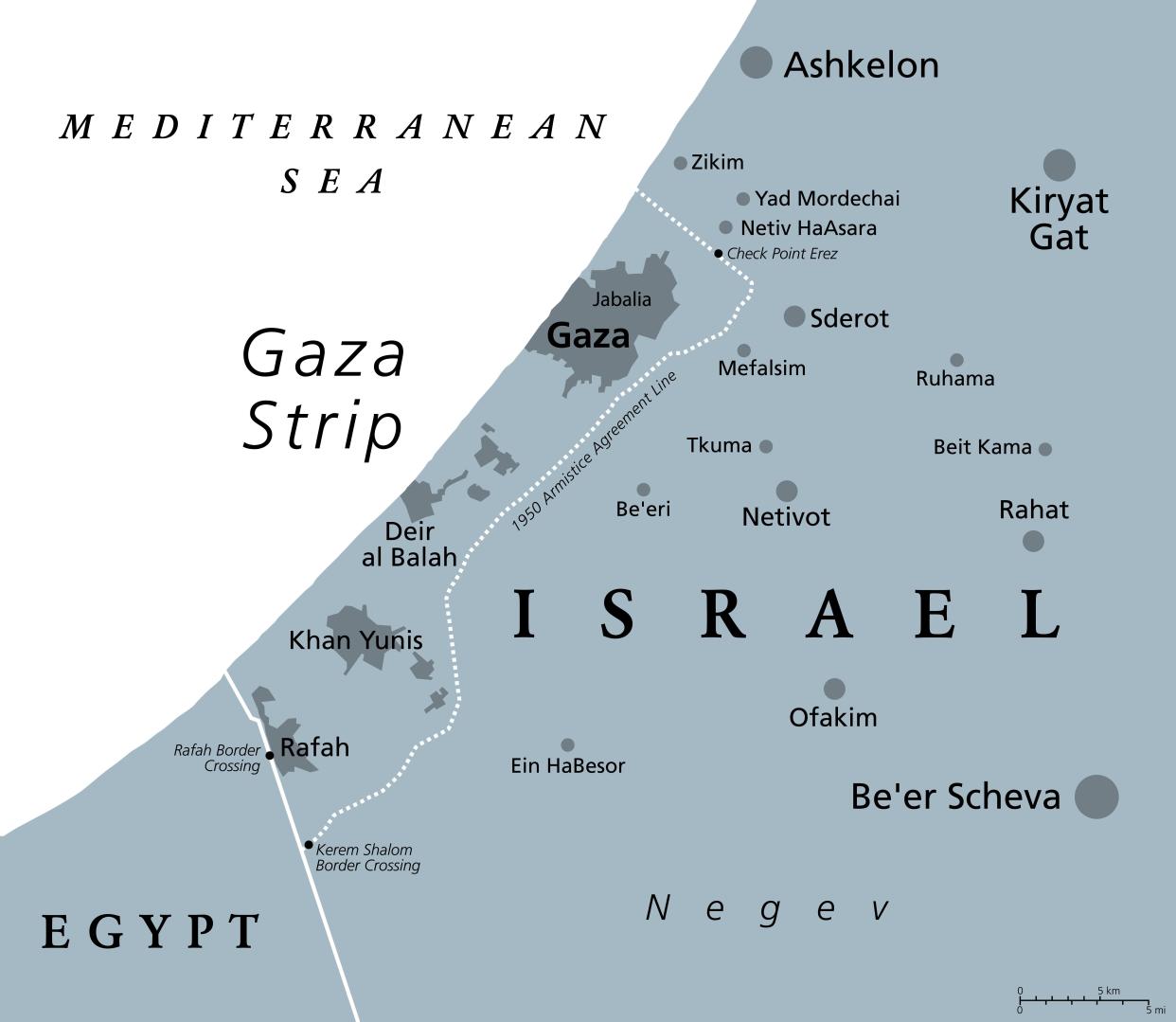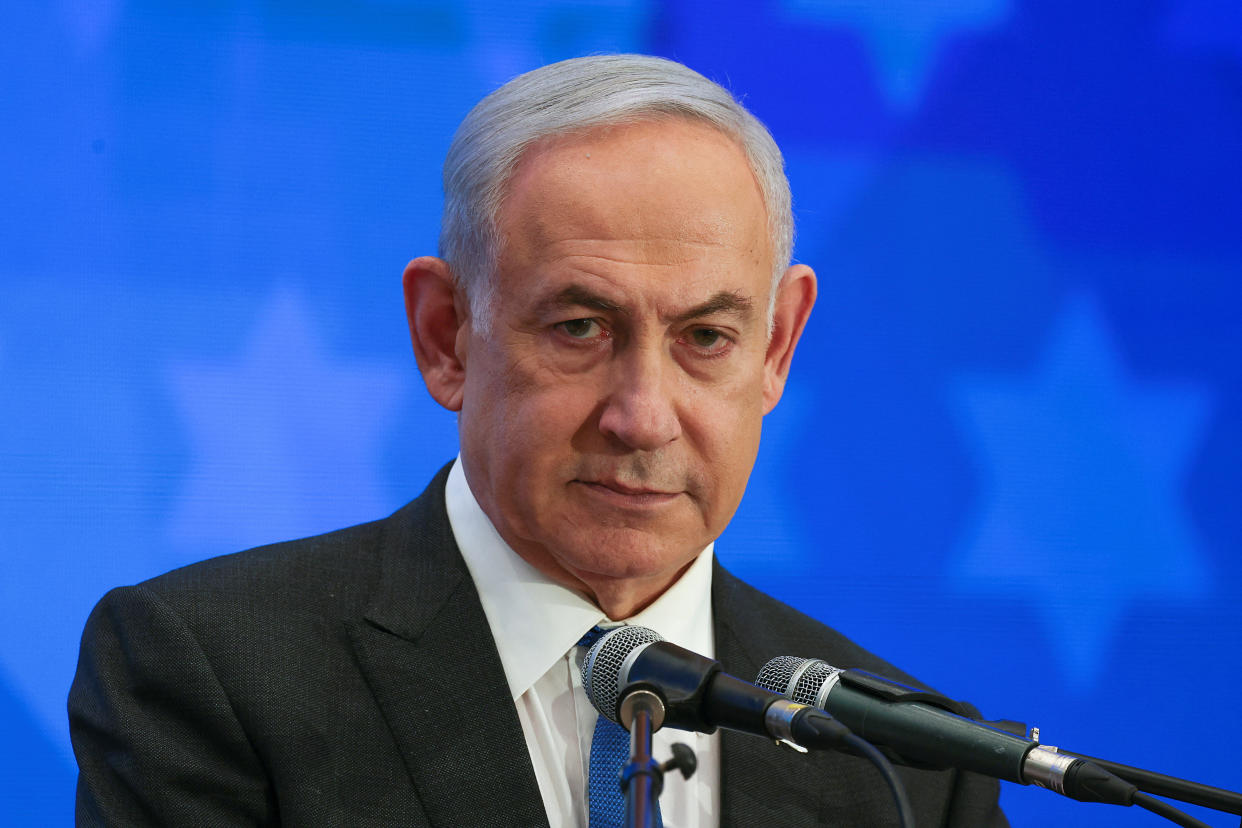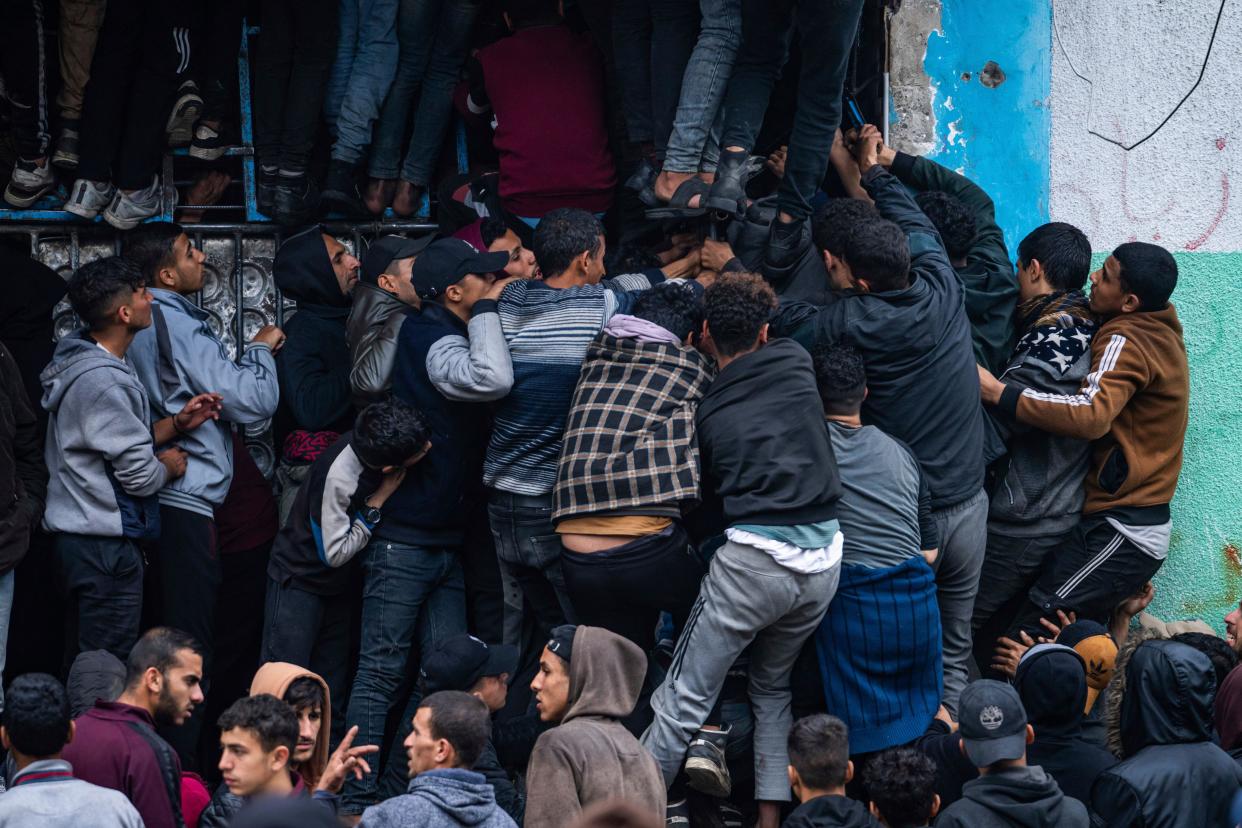What we know about Israel's planned invasion of Rafah

Israel has given an ultimatum to Hamas and has set a deadline for its anticipated ground offensive on the "safe zone" city of Rafah, in southern Gaza.
For weeks the international community has raised grave concerns over the fate of Palestinian civilians who crowded into the city after the Israel Defence Forces (IDF) bombarded the Gaza Strip further north.
More than half of Gaza Strip's population, around 1.5 million people, are currently in Rafah compared to a pre-war population of about 300,000 – fuelling fears of a catastrophic death toll adding to the reported 29,000 Palestinians killed in Israel's bombardment.
It was initially unclear when Israel would attack, but it has now told Hamas that if it doesn't free all remaining hostages taken during the 7 October attacks by the holy month of Ramadan, it will press ahead with its assault. Questions still remain over Israel's proposed evacuation plan, with neighbouring Egypt fearing an influx of Palestinian refugees who may never be able to return home.
Recommended reading
Exclusive: SNP Accused Of Giving Campaigners 'False Hope' Over Gaza Ceasefire Call (Huffpost UK)
Israel has gone ‘beyond self-defence’ in Gaza, says Labour’s Streeting (The Guardian)
US says it will block UN resolution for Gaza ceasefire as Israel bombs Rafah (Euronews)
Where is Rafah and what is happening there?
Rafah is the southernmost city in the Gaza Strip, and the final refuge for many Palestinians who have been displaced multiple times during the war.
It is now one of the most densely populated places in the world, with Medical Aid for Palestinians warning that overcrowding has "forced many displaced people to sleep on the streets, in the grounds of hospitals, or in makeshift tents in schools". There are only two government hospitals in Rafah, the charity says, both of which are only partially functional, as well as one NGO hospital, and a handful of field hospitals.
Long before a ground invasion was expected, Rafah was still subject to airstrikes by the IDF, despite the area being designated by Israel as a "safe zone" for people to flee to while northern Gaza was bombarded. Rafah is a particularly important location given its proximity to the Rafah Border Crossing with Egypt, through which humanitarian aid has been delivered.
The UN World Food Programme has said continuing violence has made it hard to distribute aid in the area, while lorries trying to cross the border have been held up by inspections by Israeli officials. The crossing was designed for people, not trucks, which can also explain the hold-ups, while Israeli protesters have also been blocking convoys at the Nitzana border post between Israel and Egypt, which drivers are required to pass through before reaching Rafah.

What has Israel said?
Despite growing international outcry over the looming invasion of Rafah, Israeli prime minister Benjamin Netanyahu has said it is necessary in order to "finish the job" in Gaza.
Israel says it has disbanded 18 of 24 regional Hamas battalions in the Gaza Strip, each of which the military estimates to have around 1,000 members. Netanyahu says four remain in Rafah, insisting an invasion is needed in order to achieve Israel's objective of destroying Hamas as a military force in Gaza, and stripping it of its control of the Palestinian territory.
Israel has previously urged Hamas to release all remaining hostages and lay down their arms and surrender. Netanyahu recently described Hamas's demands for a peace deal as "delusional" and said a new deal to release Palestinian captives does not appear close.
Defence Minister Yoav Gallant said on Friday that the IDF was planning operations in Rafah targeting Hamas fighters, command centres and tunnels, though gave no timeline for the campaign. He stressed that "extraordinary measures" were being taken to avoid civilian casualties.

What has Hamas said?
Hamas has warned against an attack on Rafah, with a leader of the militant group telling AFP: "Any attack by the occupation army on the city of Rafah would torpedo the exchange negotiations."
The organisation has given no indication that it is prepared to surrender or lay down its arms. In a statement Hamas chief Ismail Haniyeh blamed Israel for a lack of progress and said the group would accept nothing less than an end of hostilities and a complete withdrawal by Israel from Gaza, Al Jazeera reports.
“It is clear so far that the occupation [Israel] continues to manoeuvre and procrastinate on the files of interest to our people, while its position revolves around the release of prisoners held by the resistance,” Haniyeh said. He also said Israel must free Palestinian prisoners serving long sentences as part of any future ceasefire deal.
Will people be able to evacuate from Rafah and to where?
The IDF has not explained how it will move so many people from Rafah within the ruins of the Gaza Strip.
According to one Israeli security source and an international aid official, who asked not to be identified, Gazans could be screened to weed out any Hamas fighters before being sent northwards. A separate Israeli source said Israel could also build a floating jetty north of Rafah to enable international aid and hospital ships to arrive by sea.
Nonetheless, an Israeli defence official said Palestinians wouldn't be allowed to return to northern Gaza en masse, leaving scrubland around Rafah as an option for makeshift tent cities. The regional officials also said it wouldn't be safe to move a large number of people into a northern zone with no power and running water which hasn't been cleared of unexploded ordinance.
Washington is sceptical Israel has made sufficient preparations for a secure civilian evacuation, several officials familiar with the conversations between the two governments said. US President Joe Biden said on Friday he didn't expect a "massive" Israeli ground invasion to happen soon.

What is Egypt doing and saying about the refugees?
Egypt has sealed off its border with Gaza and has reiterated its opposition to the displacement of Palestinians from the territory.
Like other Arab nations, Egypt fears a repeat of the "Nakba", or "catastrophe", when 700,000 Palestinians fled or were forced from their homes during the 1948 war that accompanied the establishment of the Israeli state. Egypt nonetheless appears to be preparing an area at the border that could accommodate Palestinians, as a contingency, should an Israeli attack prompt an exodus across the border, Egyptian security sources have said.
The Egyptian government denied making any such preparations, however, recent satellite photos have shown Egypt building a wall, which is believed to be part of a buffer zone. Defence minister Gallant said Israel had no intention of evacuating Palestinian civilians to Egypt.
Is there anywhere safe left in Gaza for refugees?
As mentioned, Israel doesn't consider a mass evacuation back up north to be a safe option, and many Palestinian feel nowhere is safe in Gaza.
In a joint statement, the chief executives of seven humanitarian agencies and human rights organisation, paint a bleak picture of the situation. They say: "Over 1.5 million people trapped in Rafah have nowhere safe to go, and many have already been displaced multiple times.
"All of the Israeli supposed-safe spaces have been compromised, without exception, further proof that there was never truly anywhere safe in Gaza."
Netanyahu disputes this, however, saying on Monday "there is a lot of room to evacuate civilians from Rafah".


